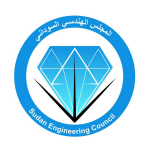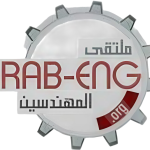about Faculty of Engineering
- To be a world-renowned Faculty of Engineering, recognized for our excellence in education, research, and societal impact.
- To cultivate a diverse and inclusive academic environment that attracts and nurtures talented individuals from around the world.
- To drive sustainable engineering practices and lead in the development of technologies that promote environmental stewardship and social responsibility.
- To provide top-tier engineering education that empowers students with the knowledge, skills, and ethical foundation necessary to excel in their careers and contribute positively to society.
- To conduct groundbreaking research that advances engineering knowledge and addresses critical global challenges.
- To engage in meaningful collaborations with industry, government, and communities to translate engineering innovations into practical solutions.
More Information
- Typically, the Faculty of Engineering comprises various departments specializing in different engineering disciplines such as civil, mechanical, electrical, chemical, computer, aerospace, and biomedical engineering.
- These departments offer undergraduate (Bachelor’s) and postgraduate (Master’s and Ph.D.) programs.
- The engineering curriculum generally includes a mix of theoretical coursework, practical laboratory sessions, and project-based learning.
- Core subjects might include mathematics, physics, materials science, thermodynamics, fluid dynamics, and engineering design.
- Advanced courses are tailored to specific disciplines, focusing on areas like robotics, artificial intelligence, renewable energy, structural analysis, and more.
- Faculties of Engineering are often involved in cutting-edge research across various engineering fields.
- Research may be conducted in collaboration with industry partners, government agencies, and other academic institutions.
- Areas of research can include nanotechnology, sustainable development, smart cities, biomedical devices, and automation.
- Engineering faculties are equipped with specialized laboratories, workshops, and research centers.
- These facilities provide students and researchers access to advanced tools, equipment, and technology for experimentation and innovation.
- Many engineering faculties have strong ties with industry, offering students opportunities for internships, co-op programs, and industry-sponsored projects.
- These connections help students gain practical experience and enhance their employability upon graduation.
- Engineering students often participate in various clubs, societies, and competitions such as robotics clubs, engineering design teams, and hackathons.
- These activities foster teamwork, leadership, and practical skills beyond the classroom.
- Engineering programs are usually accredited by national and international engineering accreditation bodies, ensuring that the education provided meets industry standards.
- Graduates may pursue professional engineering licenses and certifications to enhance their career prospects.
- Many engineering faculties offer exchange programs and collaboration with international universities, providing students with global exposure and opportunities for cross-cultural learning.
about Faculty of Engineering
The Faculty of Engineering is a leading academic division committed to excellence in engineering education, research, and innovation. Our mission is to prepare the next generation of engineers with the knowledge, skills, and creativity needed to address the challenges of a rapidly changing world.
With a wide range of specialized departments — including Civil, Mechanical, Electrical, Computer, and Chemical Engineering — we offer cutting-edge programs at both undergraduate and postgraduate levels. Our students benefit from state-of-the-art laboratories, hands-on learning, and strong partnerships with industry leaders.




